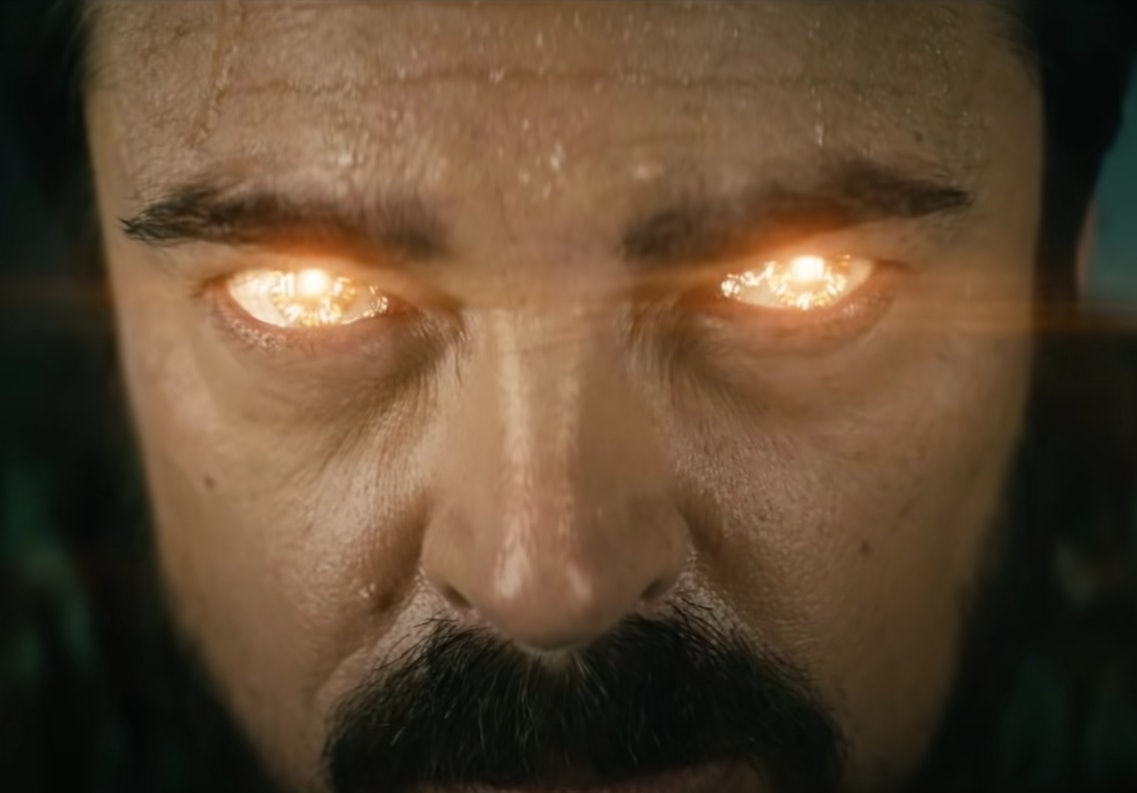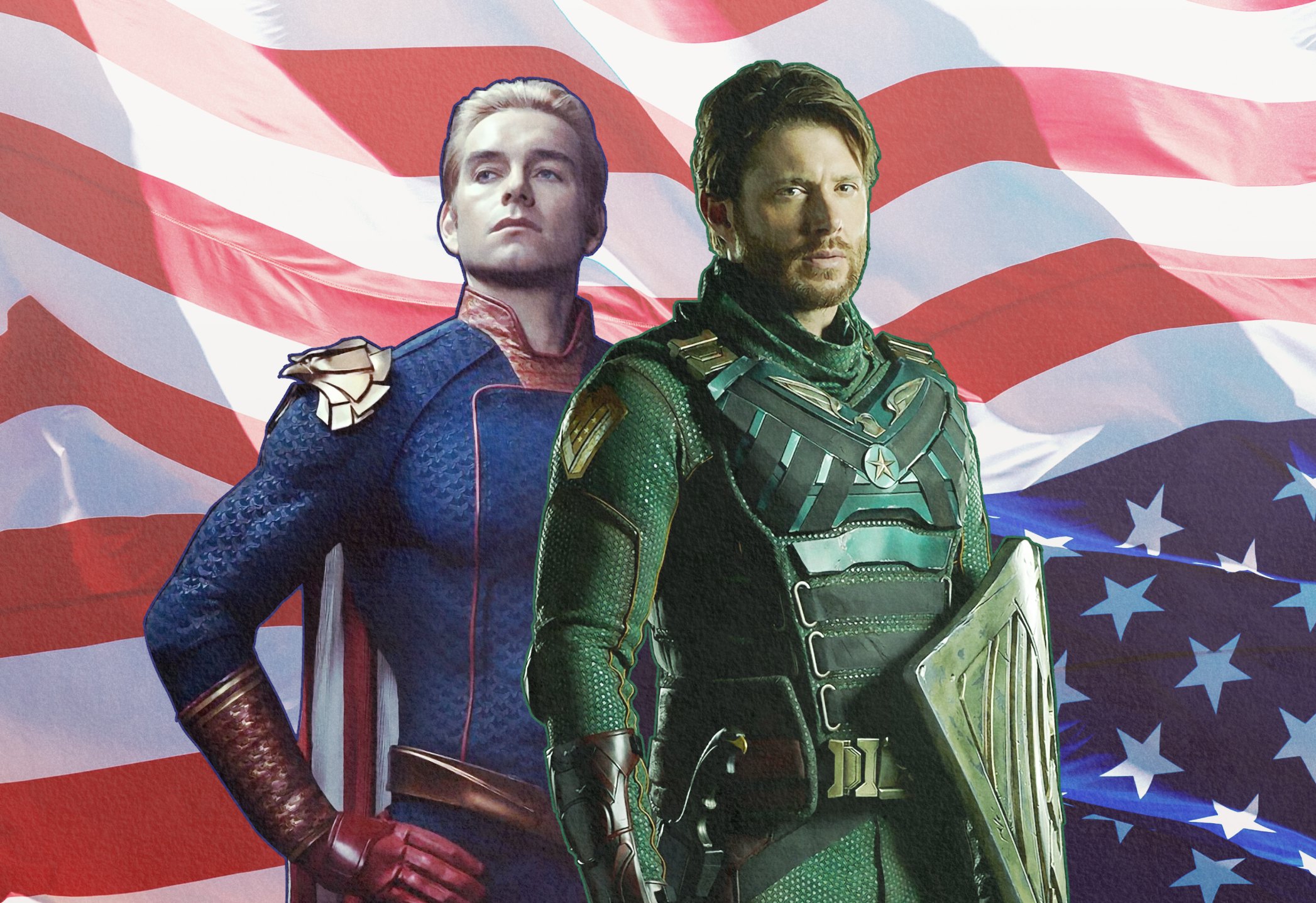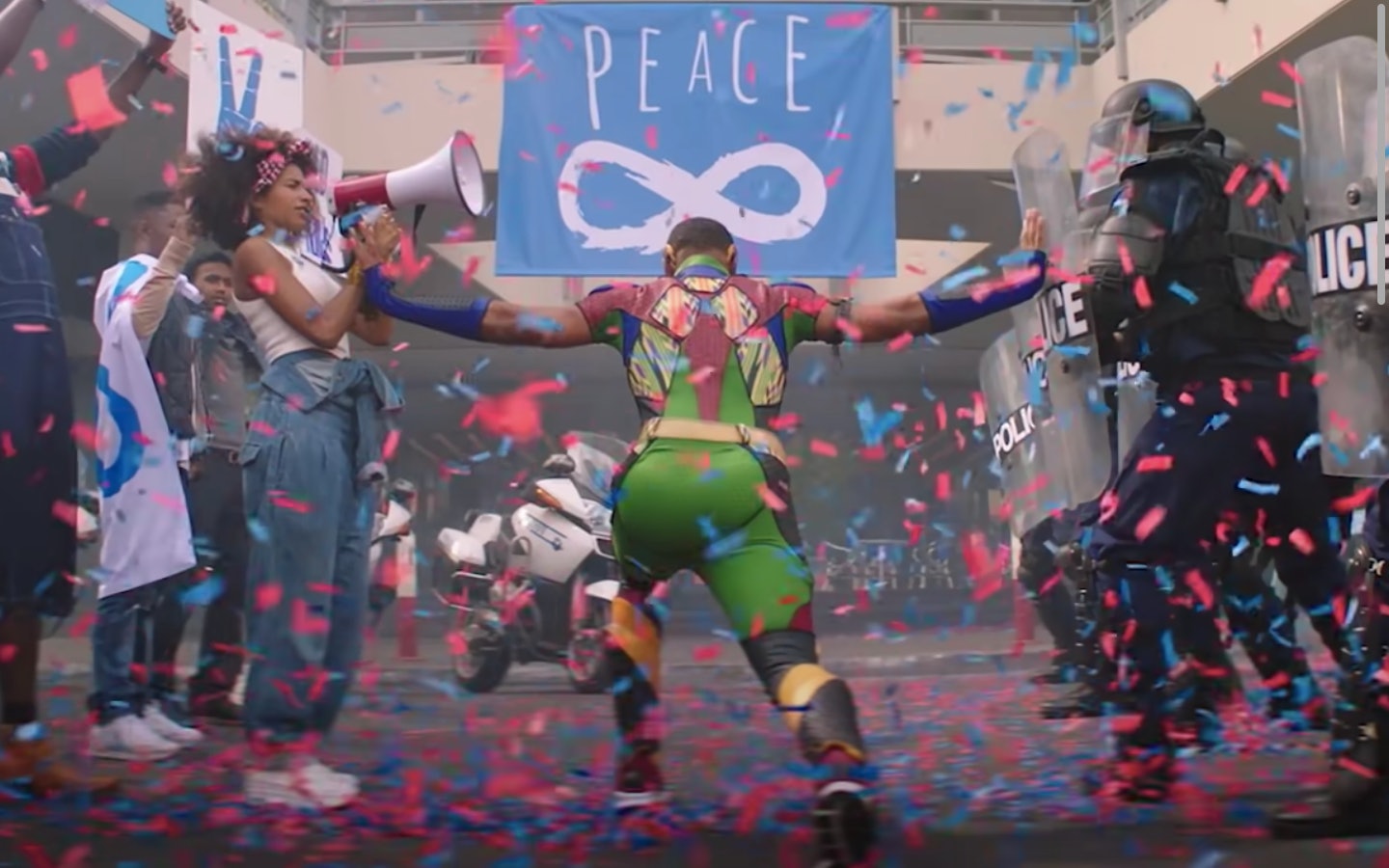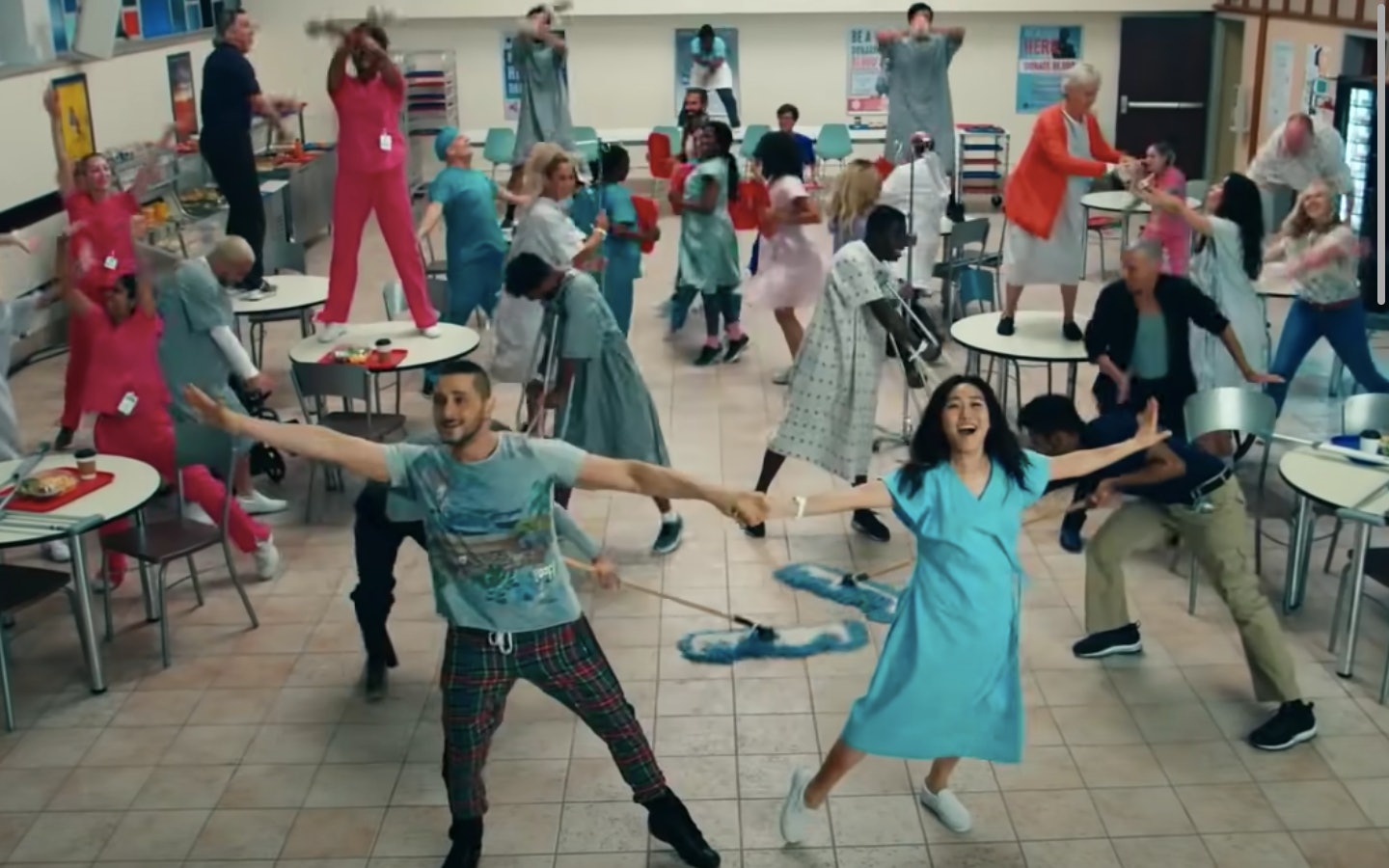The Boys was built for the Trump era.
Nazis and incompetent fascists dominated the news cycle on a daily basis, and the Amazon Prime original series reflected those back through the funhouse mirror of a perverted superhero satire. But can The Boys stay relevant in the era of boring old Joe Biden? Showrunner Eric Kripke tells Inverse it’s never been a concern.
“We just sort of did what we always do, which is, we write about the stuff that pisses us off while we’re in the writers’ room and then just hope it’s still current when it happens,” Kripke says. “That hasn’t failed us so far, and Season 3 is as current as ever.”

He adds that people often would tell him, “With Trump out of the White House, you’re really not gonna have anything to write about.” His response? “I hope so. That would be great.”
Rest assured, The Boys remains as brutally in tune with the horrors of life in America in 2022. Season 3 tackles everything from the right-wing propaganda complex (complete with a Tucker Carlson stand-in) to Republican efforts to dismantle our government institutions from the inside out — plus all the 𝑠e𝑥, drugs, and ultra-violence fans have come to expect.
Boys with superpowers

12 months after the events of Season 2, the good guys have seemingly won. Superhero corporation Vought is on its back foot and government oversight has cut the number of supe-caused collateral deaths down by 60 percent. But peace can only last so long — especially as an increasingly unhinged Homelander (Antony Starr) begins to realize how much his fans will let him get away with.
As revealed in Season 3 trailers, The Boys takes a surprising turn by giving some of its supe-killing good guys a fighting chance in the form of some powers of their own. Karl Urban’s Billy Butcher is the first to give it a shot and quickly finds he enjoys it, even if his character may wrestle with the ethical implications.
“It’s the whole moral dilemma of whether to turn yourself into the thing that you despise the most in order to defeat that thing that you despise the most,” Urban tells Inverse. “And then further to that, what is the cost? And it turns out that the cost is really high.”
Butcher isn’t alone. I’m bound by spoiler embargoes not to reveal which other members of the Boys join in on the fun, but it’s a question that threatens to tear the group apart at the worst possible time.
Soldier Boy, man out of time

The biggest addition to The Boys Season 3 is Soldier Boy (Jensen Ackles), a perversion of Captain America who “comes out of the ice.” But unlike Steve Rogers, Soldier Boy was kept frozen for a very specific reason, and it quickly becomes clear that he’s somehow even more dangerous and evil than the original big bad, Homelander.
Ackles plays the role with a deadpan comedy that’s unmatched in The Boys. One minute he’s popping pills and chugging whiskey while reminiscing about the good old days, the next he’s murdering indiscriminately. Soldier Boy also offers a fascinating portrayal of post-traumatic stress disorder beyond anything ever seen in a Captain America movie. He’s a walking, talking, bulletproof killing machine who’s always just a few words from snapping.

The only issue with Soldier Boy is that we don’t get enough of him. While Stormfront showed up almost immediately in The Boys Season 2, it takes several episodes for Ackles to join the rest of the cast in Season 3. Not only does this deprive the character of more screentime, but it also means that various revelations sometimes feel rushed as the show sprints towards its satisfying finale.

A-Train to Africa

Perhaps the most interesting arc of the season belongs to A-Train (Jessie T. Usher), who’s often felt like a one-note supe in the past. The fastest man alive can’t run anymore or his heart will explode, and Homelander is quick to mock him for putting on a few pounds. In response, A-Train does what any smart American would do: he rebrands.
“He’s trying to ride certain woke social trends,” Kripke says, “but it’s completely insincere and corporate. We poke a lot of fun like performative wokeness and that bullshit that corporations do of like, we’re down with your cause so make sure you buy more Coca Cola.”
“We poke a lot of fun like performative wokeness.”
A-Train’s embrace of his African roots (he pitches an A-Train to Africa docuseries: “I wanna get back to my roots, like in Roots!”) and the Black Lives Matter movement might be half-hearted at best, but it puts him on a journey that brings the character about as close to redemption as anyone ever really gets.

Karen Fukuhara is another standout as Kimiko. She goes on a journey of self-discovery, tired of feeling like a weapon to be wielded by Billy Butcher. Her experience is translated into a fantastical musical number set in the halls of a hospital that perfectly captures both her innocence and her own delusions.
“The musical sequence was a dream come true,” Fukuhara tells Inverse. “I never thought that I would be able to be in a musical ever in my life. And then I never thought that it would be on this show, especially.”
“The musical sequence was a dream come true.”
Even Black Noire gets to peel back the layers, though, like Kimiko, it’s only through the powers of suspended disbelief. In this case, it turns out this is a man so damaged he can only understand the world by imagining skits performed by cartoon woodland creatures, leading to a scene that would make even South Park’s creators blush.





